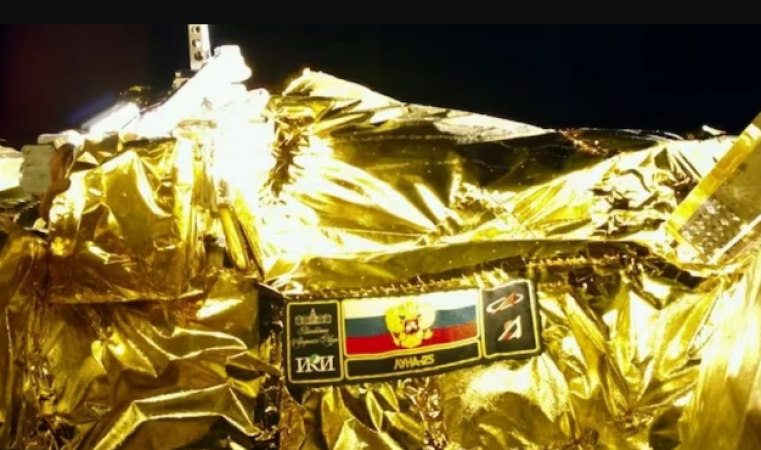Luna-25 Mission Ends in Failure
Russia’s eagerly anticipated lunar mission, the Luna-25, has suffered a significant setback as the spacecraft veered out of control and crashed onto the Moon surface. The failure is a poignant reminder of the unpredictable challenges inherent in space exploration, emphasizing that even the most advanced technology is susceptible to failure. This article delves into the details of the mission, the implications of its failure, and Russia’s unwavering commitment to lunar exploration.
The Luna-25 Mission: A Vision of Lunar Exploration
The Luna-25 mission was an ambitious undertaking by Russia, aimed at landing a spacecraft on the Moon’s south pole. This region garnered intense scientific interest due to its potential to contain water ice, a precious resource for future lunar endeavors. Beyond its scientific objectives, the Luna-25 also served as a preliminary step towards more advanced lunar missions, setting the stage for future missions that would gather and return lunar soil samples to Earth.
Luna-25 Mission Crash and Investigation: Unraveling the Failure
Regrettably, the Luna-25 mission took an unexpected turn as the spacecraft lost control and crashed onto the lunar surface shortly after a critical maneuver. The precise reasons behind this failure remain shrouded in uncertainty, prompting Russia’s space agency, Roscosmos, to launch a comprehensive investigation. The incident underscores the intricate complexities of space exploration and highlights the need for meticulous planning and thorough risk assessment.
A Look Back: Russia’s Lunar Exploration History
The last successful landing of a Russian spacecraft on the Moon occurred in 1976, marking a substantial gap in the country’s lunar exploration endeavors. The Luna-25’s failure brings this historical context into sharper focus, underscoring the formidable challenges that lunar missions entail. Despite this extended hiatus, Russia has exhibited resilience and determination in its pursuit of lunar exploration.
The Road Ahead: Continued Commitment to Lunar Exploration
Despite the disappointing outcome of the Luna-25 mission, Russia remains undeterred in its commitment to lunar exploration. The country’s space agency is poised to launch the Luna-26 and Luna-27 missions in the coming years. These missions are poised to leverage the lessons gleaned from the Luna-25’s failure and propel Russia’s lunar exploration program forward. This steadfast approach indicates Russia’s determination to learn from its mistakes and to ultimately achieve success in its lunar aspirations.
Conclusion: A Lesson in Perseverance
The Luna-25 mission’s failure serves as a poignant reminder of the inherent unpredictability of space exploration. As Russia grapples with the disappointment of this setback, it is also a testament to the spirit of resilience and determination that defines the field of space exploration. With a renewed commitment and a steadfast resolve, Russia is poised to rebound from this setback, draw valuable insights, and continue its journey towards unlocking the mysteries of the Moon.




 Legendary Bengali Author Shankar Passes ...
Legendary Bengali Author Shankar Passes ...
 List of Dadasaheb Phalke Award Winners f...
List of Dadasaheb Phalke Award Winners f...
 Which Dance Form is known as the Ballad ...
Which Dance Form is known as the Ballad ...








